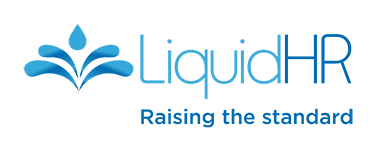What Will HR Look Like in 3 Years?
The world of work is changing at a rapid pace, technological advances, demographic shifts, and new expectations from employees are forcing the HR function to evolve. If you’re leading HR or advising organisations, here’s what the future of HR might look like in three years’ time and what you should be doing now to prepare.
1. AI & Analytics: HR becomes data-driven and intelligent
By 2028, HR functions will be far more embedded with advanced analytics, predictive modelling and generative AI to drive decisions about talent acquisition, workforce planning, performance management and retention. According to research:
- HR analytics will gain deeper visibility into what drives performance, engagement and retention.
- Organisations are shifting from just collecting data to making strategic decisions using people-data, linking it directly to business outcomes.
- AI will move from pilot phase to being a core part of HR operating models and not simply automating tasks, but augmenting decision-making.
What this means for HR: You’ll likely see HR teams wielding real-time dashboards of workforce skills, turnover risk models, AI-driven candidate-matching and even automated learning pathways for employees. The challenge: ensure ethical, transparent use of AI and guard against bias, privacy concerns and “black-box” decision-making.
2. Strategic Workforce Planning & Skills Forecasting
As the pace of change accelerates, HR will no longer just fill the next vacancy or manage performance in isolation. It will plan for what the workforce should look like 3-5 years ahead, including skills that don’t yet exist. For example:
- A study found that only a small share of organisations currently link workforce planning to future skills. McKinsey & Company
- The “future of HR” shift emphasises moving from “flux to flow” – going from reactive to proactive workforce strategies. KPMG
What this means for HR: Expect HR to partner more closely with the business leadership and strategy function. HR will be asking questions like: What capabilities will we need in 2028? How many contingent/contractor roles vs full-time? How do we design jobs and work to align with shifting markets?
3. Employee Experience & Personalisation
In the next three years, the concept of employee experience will go beyond “perk-package” and flexible working. HR will be expected to offer hyper-personalised experiences at scale. Trends point to:
- More tailored learning & development pathways aligned with individual career aspirations and skills gaps.
- Well-being, mental health and holistic employee support becoming central.
- In hybrid/remote-first environments, HR will need to design coherence, culture and belonging across distributed teams.
What this means for HR: The HR team will retain focus on platform-enabled experiences: e.g., AI-driven career path recommendations, real-time recognition apps, dynamic benefits choices, virtual-first onboarding. But also the human element: coaching, community-building, flexible work models.
4. Hybrid, Flexible & Distributed Workforces
The future of work is no longer “office vs home” it’s “wherever value is created”. Over the next three years:
- HR will manage more complex workforce models: gigs, freelancers, global remote teams, flex-hours.
- The shift to hybrid/distributed will demand new policies, technology, compliance frameworks and culture-work.
- For organisations operating across Australia (and globally), HR will need to master cross-jurisdictional issues: employment law, flexibility, and inclusion.
What this means for HR: You may see global HR platforms (covering multi-country onboarding/payroll/contracting), increased reliance on contingent workers, and more fluid career models. HR functions will need to design roles with “plug-in/plug-out” flexibility and build inclusive culture across geographies.
5. The Role of HR: From Administrator to Strategic Partner
Three years from now, HR won’t just be “people admin” but a strategic business partner. According to trend research:
- HR’s role is shifting to advising leadership on workforce-strategy, culture, and value creation rather than simply compliance and transactions.
- HR professionals will need deeper business acumen, comfort with tech, analytics literacy, and change-leadership skills.
What this means for HR: If your HR team isn’t transforming, you risk being sidelined. To stay relevant, you’ll need to: build the HR team’s capability in analytics, technology, stakeholder influencing; embed HR in business strategy; and redesign the HR operating model for speed, adaptability and value.











